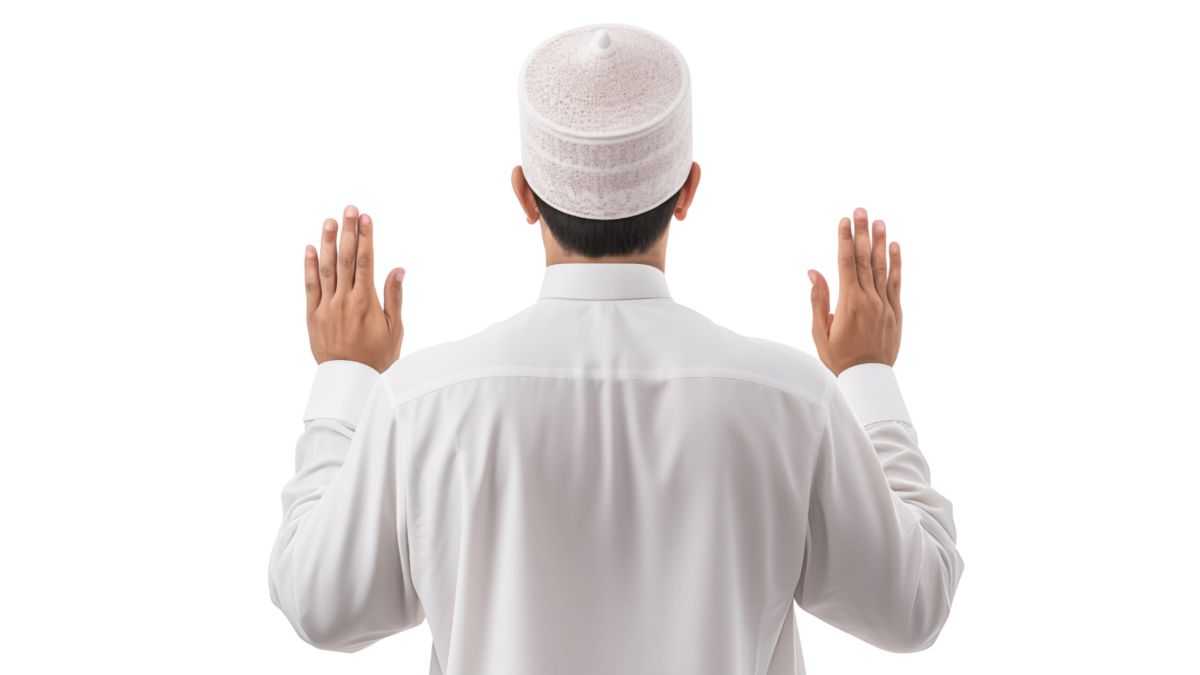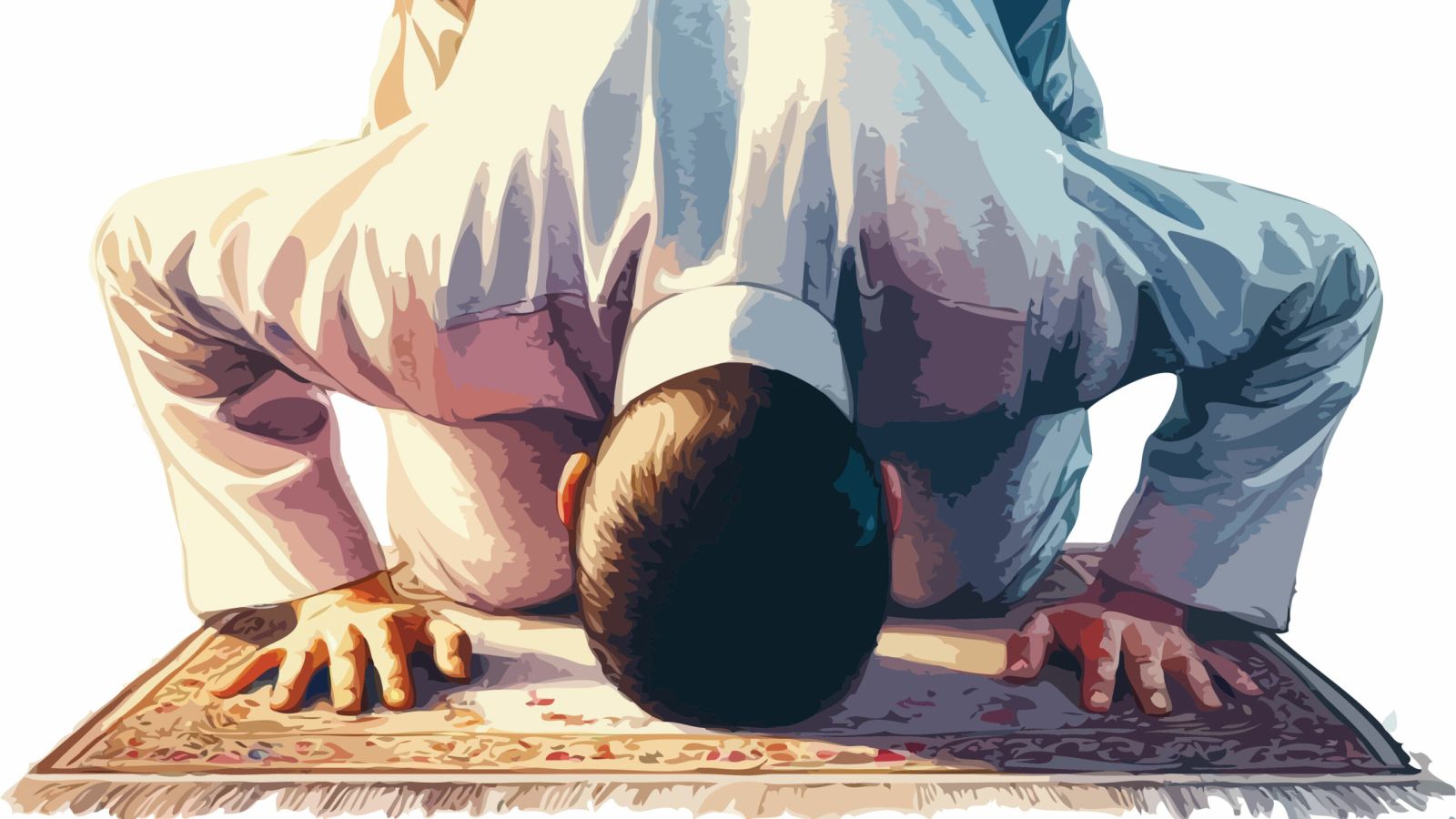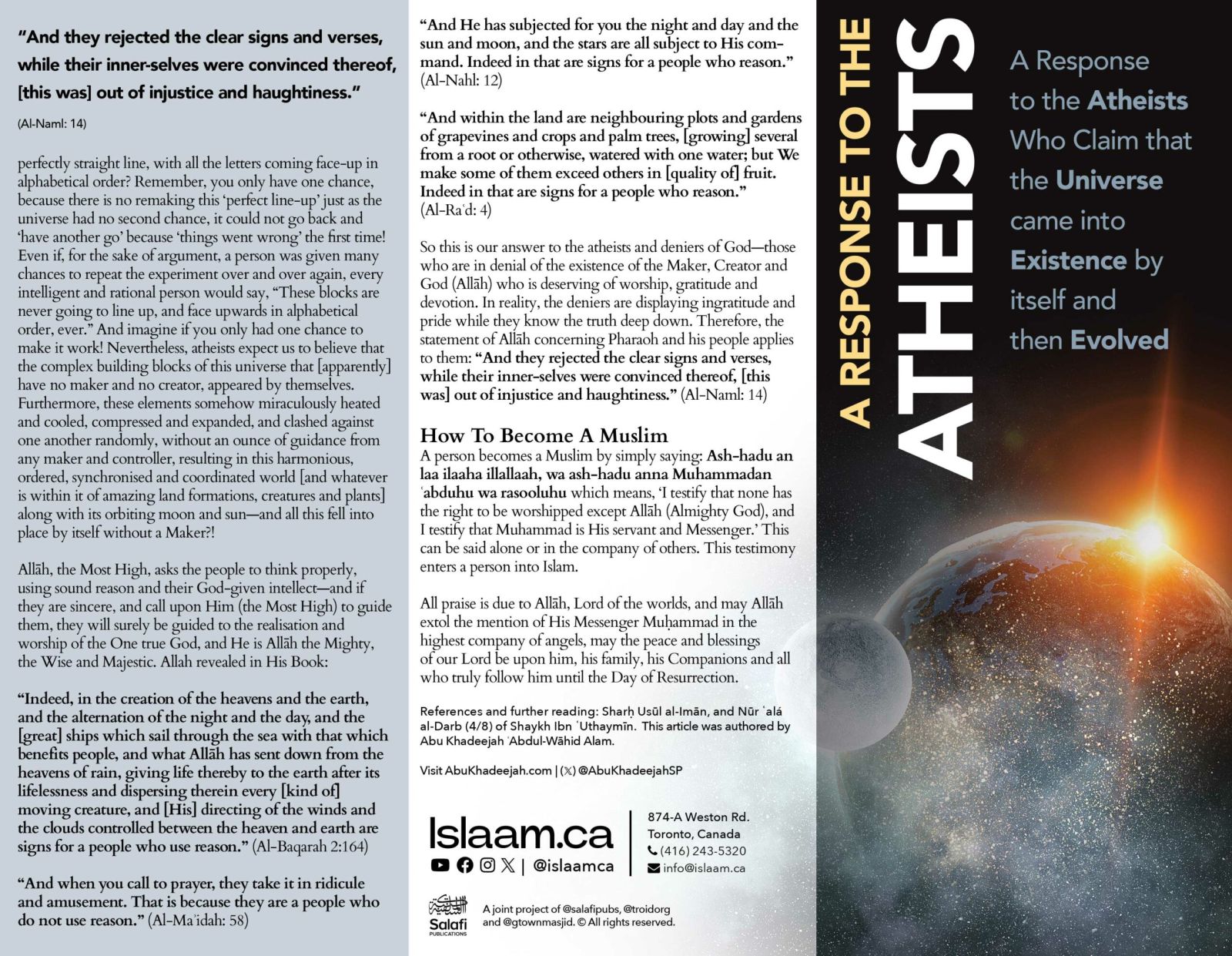Moving from the Standing Position to Rukūʿ in Ṣalāh
Imām Muḥammad ibn Ṣāliḥ al-ʿUthaymīn


Pausing Before Entering Rukūʿ
After one has completed his recitation in ṣalāh, he should say the takbīr and perform rukūʿ. It is most befitting that, before he performs rukūʿ, he is silent for a period of time. This period should be brief, a sufficient amount of time for him to catch his breath only. This is evidenced by the ḥadīth of Samurah ibn Jundub (رضي الله عنه) who narrated that the Messenger of Allāh (صلى الله عليه وسلم) used to be silent twice in his ṣalāh:
- upon beginning the prayer
- after having recited al-Fātiḥah and a sūrah, before performing rukūʿ
ʿImrān ibn Ḥuṣayn (رضي الله عنه) objected to this statement, causing him to write regarding this issue to Ubayy (رضي الله عنه) in Madīnah. He then said: “Samurah has spoken the truth”.1
The Meaning of the Term ‘Rukūʿ’
The term ‘rukūʿ’ linguistically refers to bending or bowing which refers to one’s back whilst they are performing it. Rukūʿ is performed as a means of glorifying Allāh—the Exalted in Might, as bowing acts as an indication of reverence, honour, respect, and glorification. For this reason, the people used to lower their heads before kings, highly-revered people, and leaders. To the extent that they may even fully bow, or even perform sujūd to them2—we seek refuge in Allāh. Performing rukūʿ is an action that indicates glorification of the one before whom the rukūʿ is being performed. In consideration of this, the Prophet (صلى الله عليه وسلم) said: “As for the rukūʿ, use it to glorify the Lord—Exalted in Might”,3 such that a praying person combines glorification in action (by bowing) and speech (by saying ‘سبحان ربي العظيم’) within a single position when praying.
Timing the Takbīr with Movement Between the Pillars of Standing and Rukūʿ
As for the takbīr when performing the rukūʿ, it needs to occur when a person begins his descent from the standing position. It should not occur too early before he begins his descent, or too late after he has already entered the rukūʿ position. That is, the takbīr should be said whilst a person is descending from the standing position to the rukūʿ and stops his movement. To the extent that some of the jurists (رحمهم الله) even say: ‘If a person starts saying the takbīr before he begins his descent into rukūʿ, or says it only after having already entering the rukūʿ position, then this takbīr is invalid.’ They reason that this takbīr is meant to be said whilst a person is moving so its rightful place should be between the two pillars of standing and the subsequent position of rukūʿ. If, instead, a person says it in the first pillar (while standing), then he would have said it incorrectly. Similarly, if he instead says it in the second pillar (whilst already in rukūʿ), then he would have also said it incorrectly. This is because, in both instances, he would have said a form of remembrance in other than its legislated place in the prayer. As there is no legislated takbīr while a person is in the standing position [after reciting the two surahs], just as there is no legislated takbīr in the position of rukūʿ. Rather, the takbīr is only legislated between the standing position and the rukūʿ position. This opinion undoubtedly makes a compelling point, as the takbīr in ṣalāh is meant as an indication of movement from one position to another. It is, therefore, most befitting that it is only said while a person is still moving.
However, the opinion that a person invalidates their ṣalāh by starting the takbīr while still standing upright, or finishing it after having entered the rukūʿ position, represents a great hardship for the people. This is because if you were to reflect on the manner of praying adopted by the majority of people nowadays, you would conclude that most of them do not act in accordance with this view. As among them are those that begin saying the takbīr before beginning their descent, and among them are those that manage to enter the rukūʿ position before finishing the takbīr.
The strangest aspect of this issue is the position taken by some aʾimmah nowadays based on their own incorrect ijtihād where they say: ‘I will not say the takbīr until I have already entered the rukūʿ position. This is because if I say the takbīr before I actually enter the rukūʿ, then those I am leading may precede me, beginning their descent before I have managed to enter rukūʿ. They may even perform their rukūʿ before I have performed mine.’ Such a position represents a strange judicial opinion because it necessitates the imām intentionally corrupting his own prayer—according to an opinion of some of the scholars—so that he can validate the ṣalāh of others (those praying behind him). Even though those praying behind him were never commanded to precede him; rather, they were ordered to follow him. For this reason, we say: This view is inapplicable, and the one whose ijtihād has allowed him to arrive at such an opinion is a person of compound, multi-faceted ignorance. This is because he is not only ignorant himself, but also ignorant of his state.
We say: Only say the takbīr when you begin your descent, and try your utmost to finish it before you enter rukūʿ. If you happen to enter the rukūʿ position before completing the takbīr, then there is nothing wrong with this. The opinion that a person invalidates their ṣalāh if they enter rukūʿ before finishing the takbīr represents an unnecessary hardship for the people as they will find great difficulty in implementing this view.
The correct opinion in this issue is that there is nothing wrong with a person beginning the takbīr before his descent and finishing it after the movement is complete. Just as there is nothing wrong with a person starting the takbīr when he begins moving and finishes it after having entered the rukūʿ position. However, the most superior manner of performing this takbīr is to try—to the very best of your abilities—to time your takbīr such that it occurs between these two pillars (of standing and rukūʿ). The same can be said regarding the ‘سمع الله لمن حمده’ when a person rises from rukūʿ and the remaining takbīrāt of movement in the ṣalāh. As for a person who delays saying any of these takbīrāt until after he reaches the subsequent pillar of the ṣalāh, then this takbīr should be considered invalid.
Endnotes:
[1] Weak: narrated by Abū Dāwūd: 777-778. Graded weak by Shaykh al-Albānī in Ḍaʿīf Sunan Abī Dāwūd: 135-136.
[2] Translator’s note: This has degenerated today such that even celebrities and sports personalities are worshipped in such a way.
[3] Authentic: narrated by Muslim: 479.
Source: Al-Sharḥ al-Mumtiʿ 3: 86-88
Translated by: Riyāḍ al-Kanadī

















